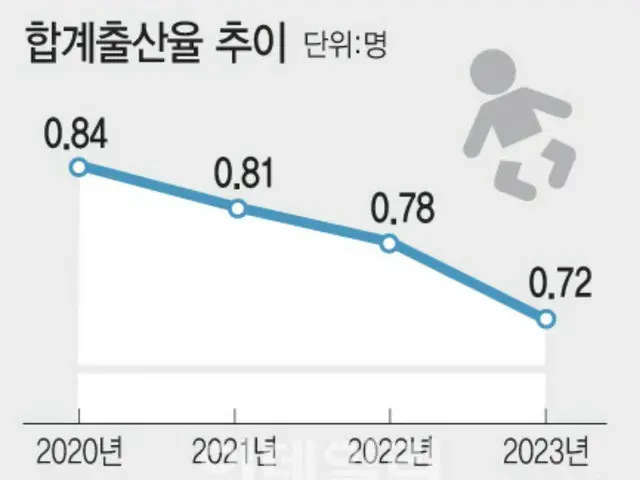According to an analysis by a civic group, 220 bills related to pregnancy, childbirth, childcare, and family care were proposed in the 21st National Assembly.
Of these, only seven bills (3.2%) were passed. Furthermore, not a single related bill was passed in 2023. The declining birthrate is threatening the existence of the nation, but the ruling and opposition parties are
It is questionable whether they have seriously considered the issue. Nevertheless, with the 22nd general election approaching, the political world has once again made pledges related to the declining birthrate.
In his first election pledge, he proposed making one month of paternity leave mandatory for fathers, childcare support measures for infants and toddlers from birth to the early years of primary school, and measures to improve the supply and demand of alternative human resources for small and medium-sized enterprises. Not to be outdone, the Democratic Party also proposed
He promised to lend 100 million won to new mothers, provide public rental housing for new mothers when they give birth, and pay 200,000 won per month for each child between the ages of 8 and 17.
There are also suspicions that the government is trying to get only the best out of the government. A citizen who was interviewed by E-Daily recently for the article "Questioning the path of the Republic of Korea in the era of low birth rates" said that the government has high
He cited housing prices, education costs, and a workplace culture that is not conducive to child rearing as causes of the declining birthrate, and described it as a "general crisis." He said he "cannot remember" most of the policies the government has put in place.
The answer was, "We have to be careful not to make promises that we don't keep, because we have to keep them. We ...
We must listen to their voices. We must face up to the problems they face, such as employment, housing, and childcare, and first promote those parts of the 22nd general election pledges that the ruling and opposition parties can agree on.
Otherwise, the same stigma as that of the 21st Diet, where bills related to the declining birthrate only passed at a rate of 3.2%, will likely be repeated in the 22nd Diet.
2024/05/22 09:47 KST
Copyrights(C) Edaily wowkorea.jp 88

